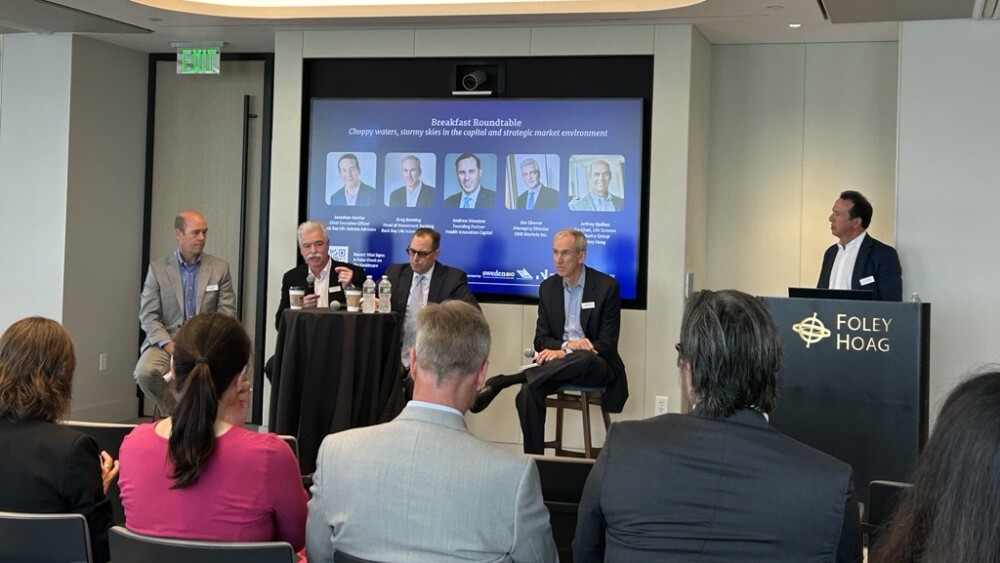WASHINGTON, June 1 /PRNewswire/ -- The annual meeting of the Consortium of Multiple Sclerosis Centers (CMSC), the largest meeting devoted to the comprehensive care and science of multiple sclerosis (MS), is underway in the nation's capital today. Multiple sclerosis, a disease of the central nervous system that affects 400,000 people in the United States, challenges patients, care partners and healthcare professionals in many ways. The meeting provides specialists in the fields of MS healthcare, research, advocacy, community service and education to keep abreast of the latest information on patient care delivery systems and evidence-based practice.
Below are three highlights from the conference that reflect the caliber of innovation and inspiration at the meeting.
1. Dr. Randall T. Schapiro was honored with a Lifetime Achievement Award by the CMSC on May 31st. This award recognizes the accomplishments of leading figures in MS care and research for their contributions to the CMSC. Dr. Schapiro founded the first comprehensive MS center in the United States, the Fairview MS Center in Minneapolis, which he continues to direct. A founder and past-president of the CMSC and a member of the Board of Trustees of the CMSC Foundation, he serves on the boards of the International MS Society and the National MS Society. "Dr. Schapiro is much beloved by his patients," said June Halper, Executive Director of the CMSC. "He has dedicated his life to the service of people with MS. His innovative MS program includes everything from the first MS Achievement Center, coordinated rehab services, home care services, outpatient and inpatient care, to education and research." 2. A web-based program was premiered on May 31st on the latest strategies for treating MS-related spasticity, a very difficult symptom of the disease. It includes discussions on non-pharmaceutical strategies and assessments, medication management, rehabilitation, and for some instances, intrathecal delivery of baclofen, a technology that has revolutionized rehabilitation in MS. Developed by a team on behalf of the CMSC, headed by Dr. Francois Bethoux, Danni Gogol, RN, and Matt Sutliff, physical therapist, it will be featured on the CMSC website after the launch. The development of this program was a CMSC project partially supported by Medtronic, Inc. 3. Numerous presentations throughout the week will focus on new and important information about MS research. A new feature of CMSC includes a "late breaking" poster session on June 1st in which Dr. Mark S. Freedman, Professor of Neurology at the University of Ottawa, will share results from a study that validates that immediate treatment of early stages of MS with an immunomodulatory agent can significantly slow the onset of disability.
Dr. Freedman is an investigator of the study called BENEFIT (BEtaseron in Newly Emerging multiple sclerosis For Initial Treatment) that tested whether earlier stages of MS can also benefit from pharmaceutical intervention. Results showed that prompt initiation of Betaseron treatment in patients with a first MS attack was associated with a 40 percent reduced risk of confirmed disability progression over three years. This study confirms that early treatment is desirable in MS to avoid or diminish long-term disability. Betaseron is approved for the treatment of relapsing forms of MS to reduce the frequency of clinical exacerbations. Patients with MS in whom efficacy has been demonstrated include patients who have experienced a first clinical episode and have MRI features consistent with MS.
For information about the Consortium of Multiple Sclerosis Centers, please visit http://www.mscare.org/cmsc/
Consortium of Multiple Sclerosis CentersCONTACT: June Halper, Executive Director of the CMSC,june.halper@mscare.org
Web site: http://www.mscare.org/cmsc/




